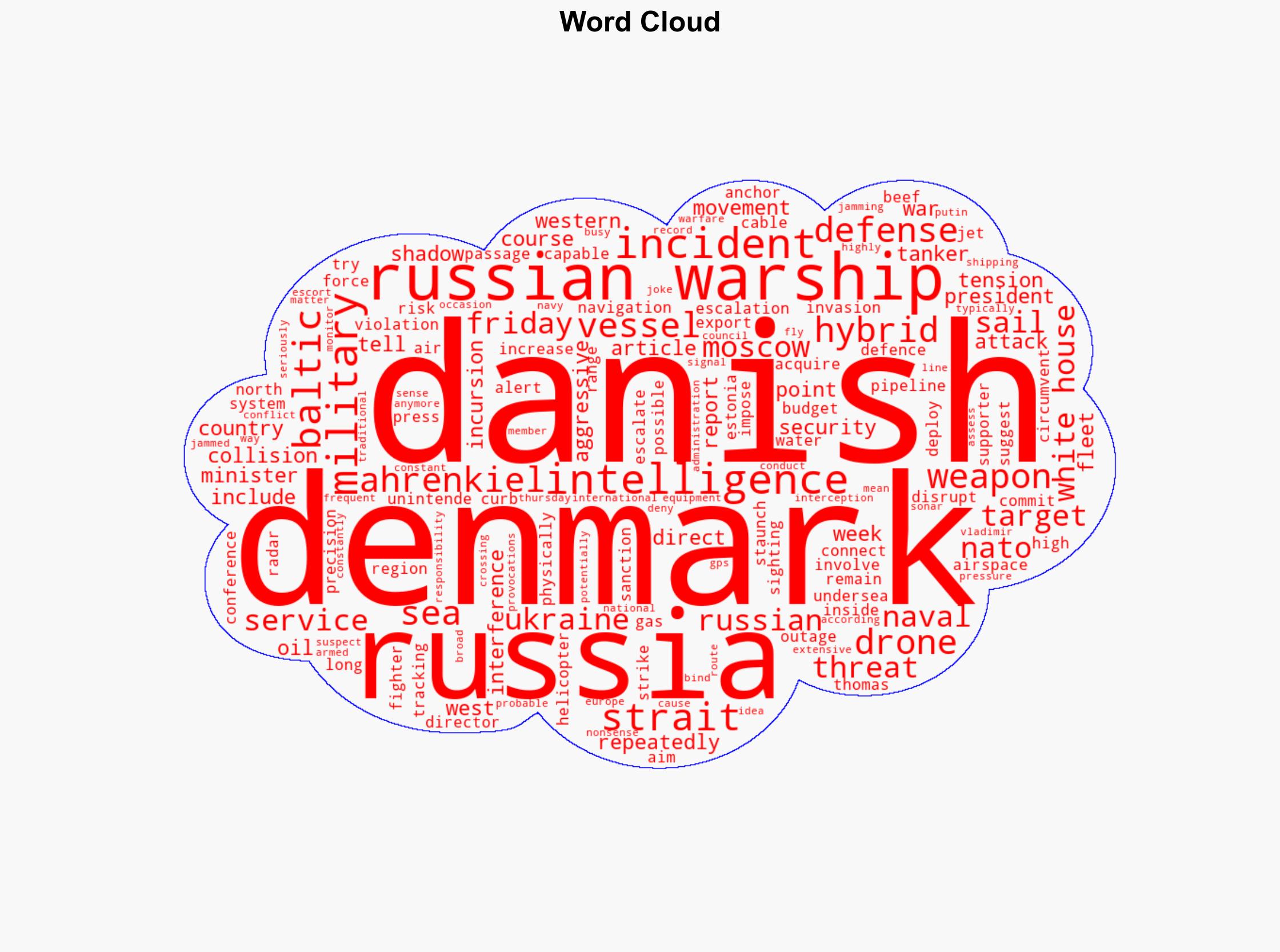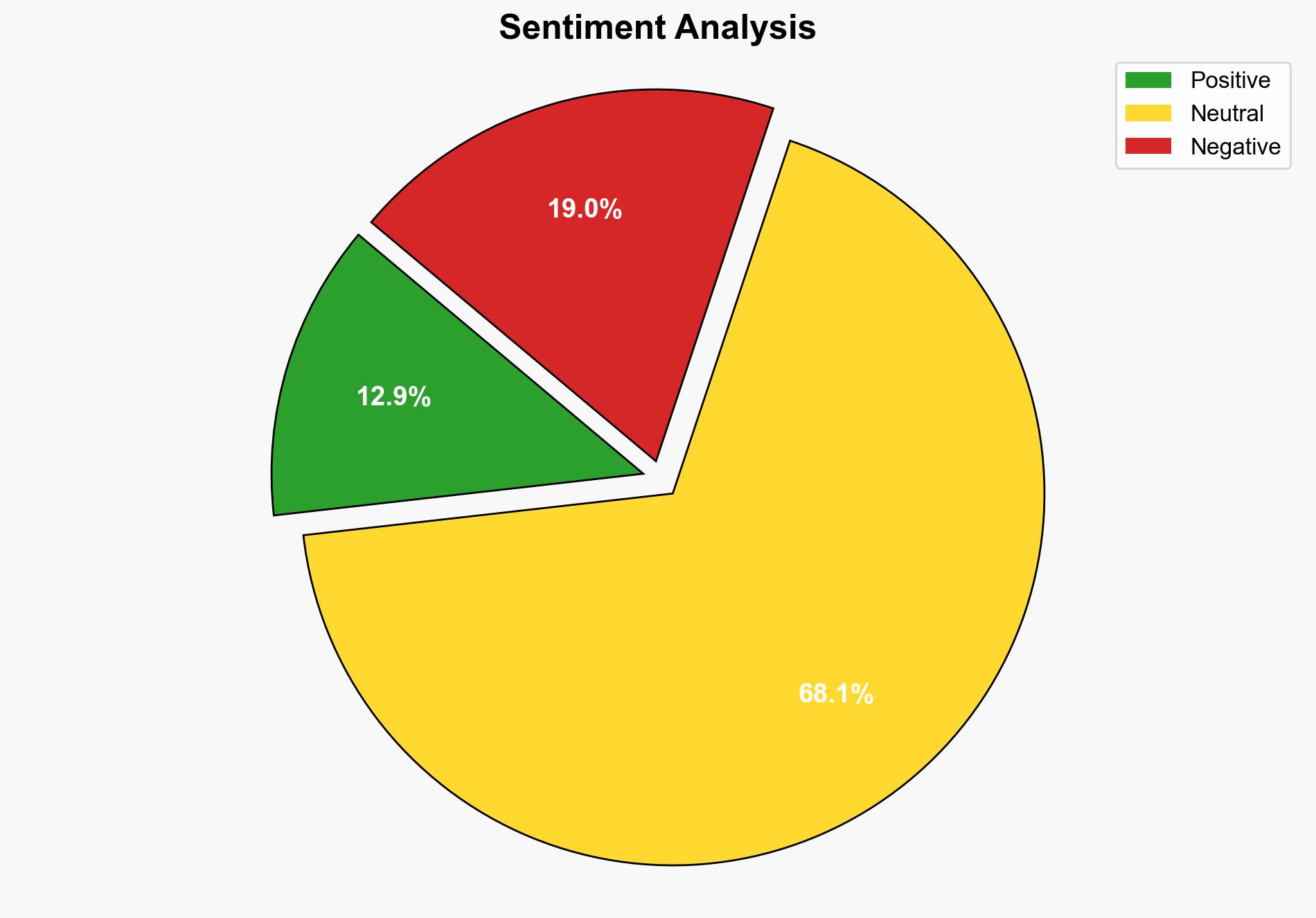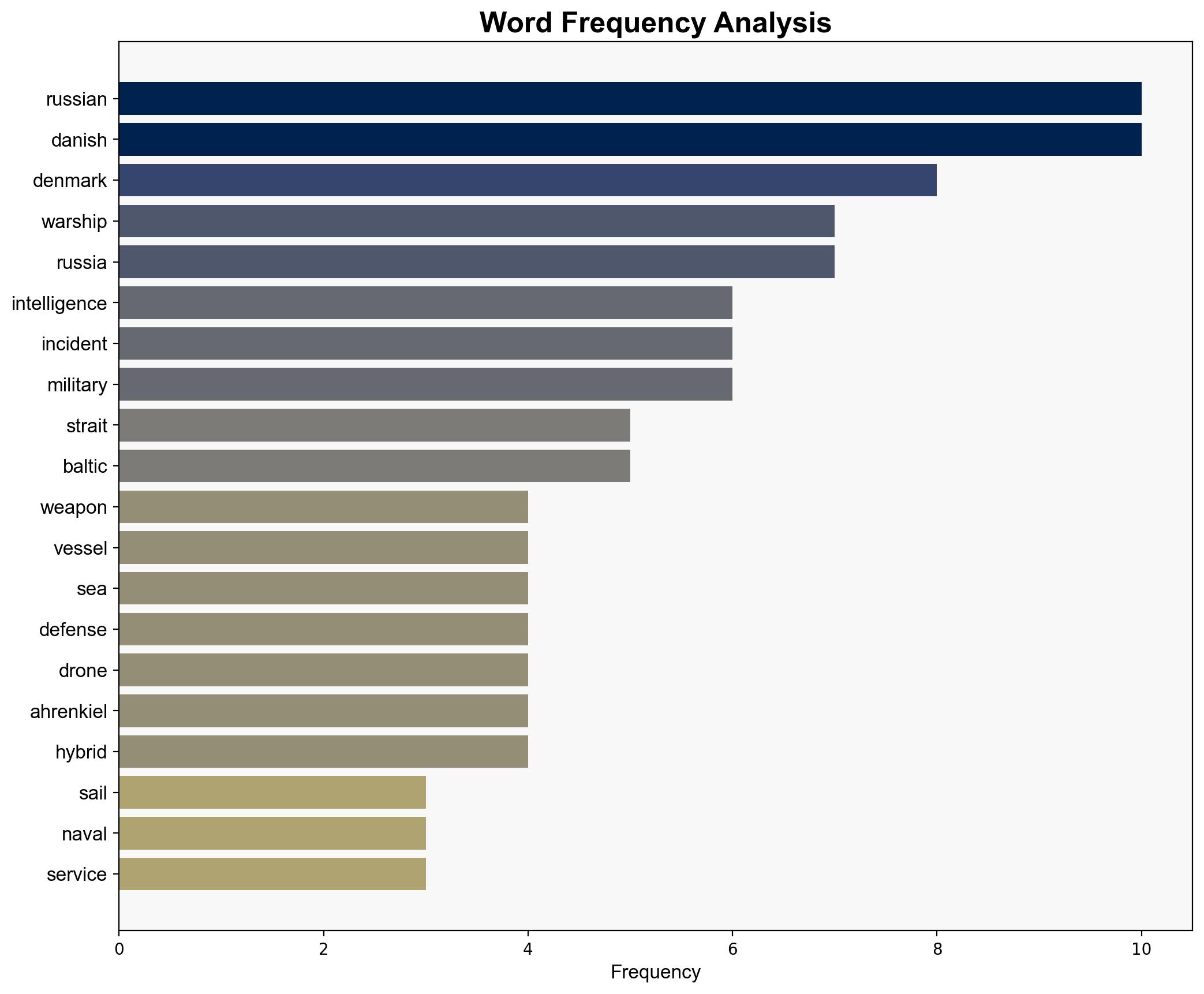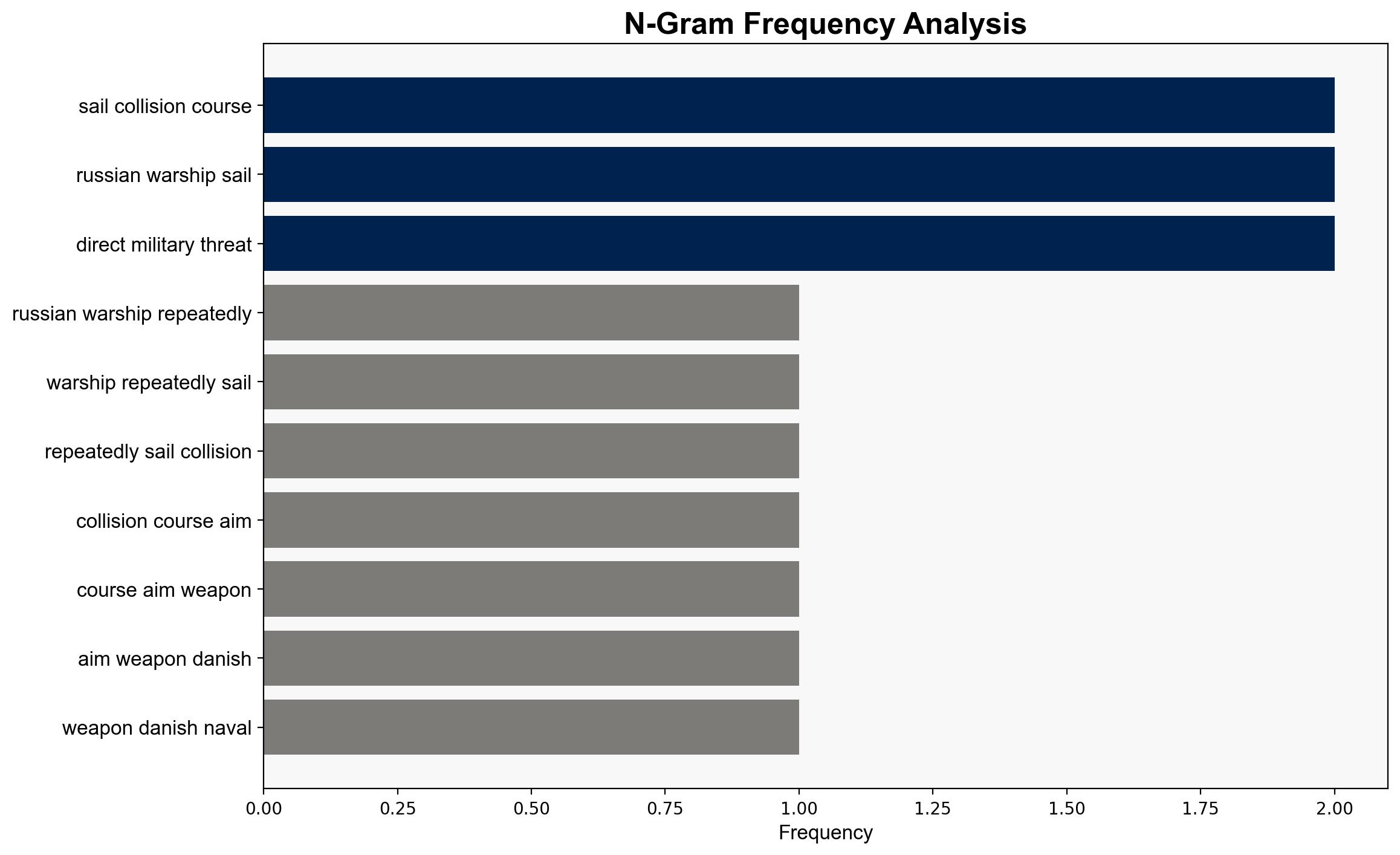Denmark Reports Repeated Russian Naval Provocations in its Straits – Insurance Journal
Published on: 2025-10-06
Intelligence Report: Denmark Reports Repeated Russian Naval Provocations in its Straits – Insurance Journal
1. BLUF (Bottom Line Up Front)
The most supported hypothesis is that Russia is engaging in hybrid warfare tactics to test NATO’s response capabilities and assert its influence in the Baltic region. Confidence level: Moderate. Recommended action: Increase NATO surveillance and readiness in the Baltic Sea to deter further provocations and ensure the security of critical infrastructure.
2. Competing Hypotheses
1. **Hypothesis 1**: Russia is conducting deliberate provocations to test NATO’s response and assert its presence in the Baltic region. This includes using hybrid warfare tactics such as GPS jamming and undersea cable interference.
2. **Hypothesis 2**: The incidents are isolated events resulting from miscommunication or navigational errors, rather than a coordinated strategy by Russia.
Using the Analysis of Competing Hypotheses (ACH) 2.0, Hypothesis 1 is better supported due to the pattern of repeated incidents, the presence of sonar jamming equipment, and the strategic importance of the Baltic Sea for Russian military movements.
3. Key Assumptions and Red Flags
– **Assumptions**: It is assumed that Russia has the capability and intent to engage in hybrid warfare. It is also assumed that the reported incidents are accurately described and not exaggerated.
– **Red Flags**: The lack of direct evidence linking Russia to some of the hybrid threats (e.g., drone incursions) could indicate potential misattribution. Additionally, Russia’s denial of responsibility could be a strategic deception.
4. Implications and Strategic Risks
The ongoing provocations could lead to unintended military escalation in the Baltic region, impacting regional security and NATO cohesion. There is a risk of economic disruption if critical infrastructure, such as undersea cables and pipelines, is targeted. Cybersecurity threats may increase as part of a broader hybrid warfare strategy. Geopolitically, these actions could strain Russia’s relations with the West further, potentially leading to increased sanctions or military posturing.
5. Recommendations and Outlook
- Enhance NATO’s maritime surveillance and readiness in the Baltic Sea to deter further provocations.
- Strengthen cybersecurity measures to protect critical infrastructure from potential hybrid threats.
- Engage in diplomatic efforts to de-escalate tensions while preparing for potential escalation scenarios.
- Scenario-based projections:
- Best: Diplomatic resolution and reduction in provocations.
- Worst: Escalation to direct military conflict in the Baltic region.
- Most Likely: Continued provocations with increased NATO readiness and diplomatic engagement.
6. Key Individuals and Entities
– Thomas Ahrenkiel
– Mette Frederiksen
– Troels Lund Poulsen
– Vladimir Putin
7. Thematic Tags
national security threats, cybersecurity, counter-terrorism, regional focus





